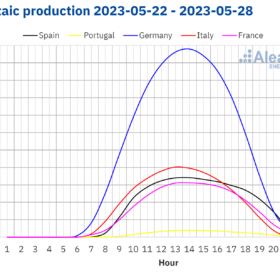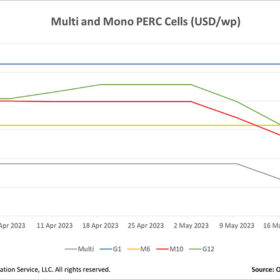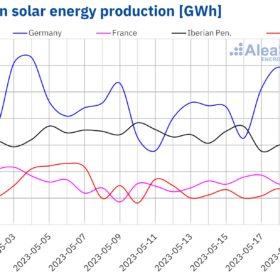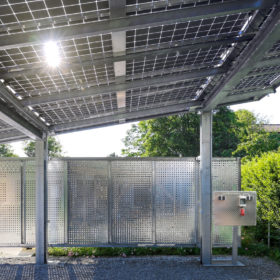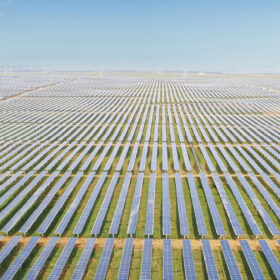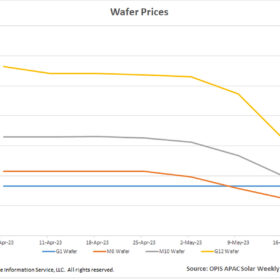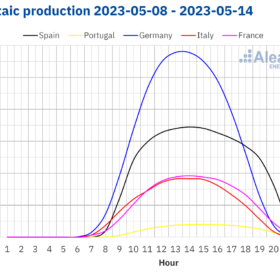Photovoltaic energy continues to set new records in European electricity markets
Gas and CO2 prices continued their downward trend in the fourth week of May, which led to a general downward trend in prices in European electricity markets and several negative hourly prices were registered, which reached -€400/MWh in Netherlands. The notable exception of the Iberian market, which saw a rise in prices, came from the fall in renewable energy production. During the week, records of solar photovoltaic energy production were reached in Germany, France, and Italy.
Smoke from early fire season impacts irradiance across North America
In a new weekly update for pv magazine, Solcast, a DNV company, presents the solar irradiance data it collected for North America since early May. The province of Alberta saw close to 100 wildfires raging from the beginning of the month and solar asset operators throughout the impacted regions can expect reduced efficiency from both the irradiance impacts and increased panel soiling.
Cell prices slip, weighed down by sustained falling upstream prices
In a new weekly update for pv magazine, OPIS, a Dow Jones company, provides a quick look at the main price trends in the global PV industry.
New episodes of negative or zero prices in European electricity markets
In the third week of May, negative or zero hourly prices were registered in most of the European electricity markets, especially during the weekend. In the Nord Pool market, the value of -€5.67/MWh registered during an hour on Sunday May 21, is the lowest one in history. For the week as a whole, prices decreased in every market, due to the decrease in demand and gas prices, and also to a higher solar and wind energy production than that of the previous week in several markets.
Biofuels vs. solar electricity for urban mobility
Solar electricity will have to compete with biofuels in the urban mobility landscape. Biofuels, however, have a very low energy productivity per hectare, as well as high requirements for fertilizers, pesticides, and water.
Solar dawn
Frank Haugwitz arrived in China in June 2002 as technical adviser to the solar-focused Sino-German Renewable Energies in Rural Areas Program. He has directly observed the nation’s rise to solar superpower status.
Falling wafer prices continue to make headway for downstream prices
In a new weekly update for pv magazine, OPIS, a Dow Jones company, provides a quick look at the main price trends in the global PV industry.
Storm Minerva hits solar power generation in Italy
In a new weekly update for pv magazine, Solcast, a DNV company, presents the solar irradiance data it collected for Italy in May. These data show that, during the Storm Minerva, solar PV production in Italy and the TransnetBW ISO region in southern Germany was significantly depressed from previous days. Conversely, wind power trended high, due to the intense and widespread nature of the system.
Record values of solar photovoltaic energy production in Portugal in the second week of May
In the second week of May, the solar photovoltaic energy production registered a record maximum hourly value in Portugal, adding to the streak of records for this technology in Europe during 2023. In the electricity markets, the prices remained stable with an upward trend, except in the MIBEL and the Nordic markets where the prices decreased. Zero price hours were registered at the weekend in the MIBEL market and negative ones in the Netherlands. Gas futures registered the lowest price since July 2021.
April irradiance up for US and Mexico, down for Canada
In a new weekly update for pv magazine, Solcast, a DNV company, presents the solar irradiance data it collected for North America in April. These data show that positive departures from normal April irradiation benefitted solar producers from California, Baja California and Sonora right across the continent to Pennsylvania, New Jersey and Maine.
